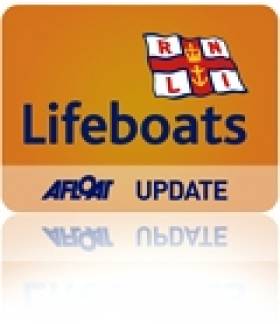Displaying items by tag: Sir Samuel Kelly
Donaghdee RNLI Remembers Princess Victoria Tragedy 60 Years On
#RNLI - The sinking of the Princess Victoria on 31 January 1953, with the loss of 135 lives, was the worst maritime disaster in the waters of the British Isles.
The Donaghadee lifeboat Sir Samuel Kelly rescued 34 from the disaster which occurred in the North Channel en route to the Port of Larne, with its coxswain Hugh Nelson being awarded a Bronze Medal and the British Empire Medal for the skill, courage and initiative shown during the rescue.
The Sir Samuel Kelly still lies in Donaghdee, and last weekend a number of events were organised to raise funds and awareness of the need to find a permanent sheltered home for this historic lifeboat.
A marquee supplied by Ards BC had been placed next to the Sir Samuel Kelly and a committee of local supporters organised a weekend of events.
On Friday 25 January a talk to local school children was followed in the evening by a commemoration concert which featured the Donaghadee Male Voice choir and the Festival Brass Band.
On Saturday evening there was a film show with a Pathé news clip from 1953 showing the Kelly bringing in survivors followed by a 1953 film Gentlemen Prefer Blondes.
Sunday saw the Donaghadee RNLI Saxon crew going to sea to lay a wreath at the spot where the Princess Victoria sank. They were joined by lifeboats from Larne and Portpatrick, and a short service of remembrance was led by Donaghadee 1st Presbyterian minister Colin Anderson.
On returning to harbour, the crews joined a combined church service of remembrance in the marquee with over 350 people in attendance. All funds raised will go to the Sir Samuel Kelly Restoration Fund.





























































